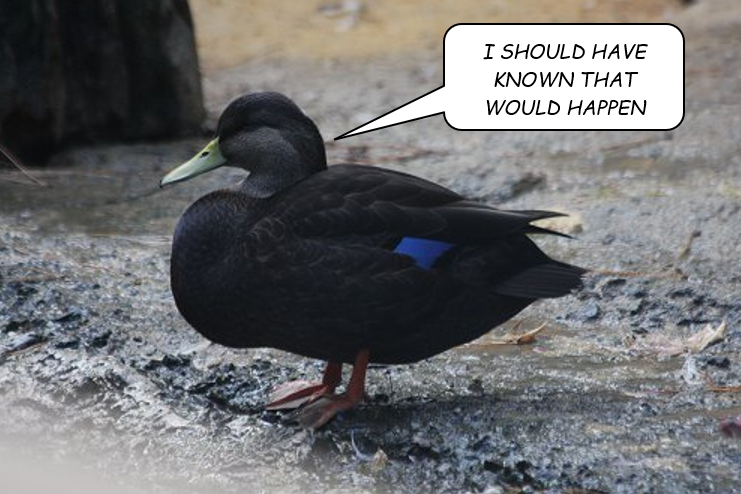Black duck
Black duck
/blæk/ /dʌk/ (n.)
|
An event that:
- (a) Has an outsized, or non-linear impact on its environment
- (b) Is highly amenable to ex post facto, wise-after-the-event rationalisations, especially by politicians, regulators and bank executives
- (c) Lies outside the actual expectations, whether or not sensible or reasonable, of the person whose job it is — was — to keep an eye out for things of this nature.
From a company executive’s perspective, black ducks are like black swans — exactly the same in fact — only they are easier for people on Twitter to be judgmental about.
So, if it is a black swan, Q.E.D. it is no-one’s fault, certainly not yours, being impossible to foresee,[1] so you get away scot-free, the taxpayer foots the bill and you just fire a few subject matter experts for the sake of good order and to be seen to be doing something.
If it is a black duck, you should have known better, so your main industry is plausibly establishing that this is all your subject matter expert’s fault, so you fire them for good measure and the taxpayer picks up the bill.
Subtle, but important intellectual distinction even though it has no practical influence on the lived experience of (a) taxpayers or (b) subject matter experts.
So, black swans: The collapse of the Soviet Union, 9/11, the internet, GameStop.
Not black swans: Covid-19, the Global Financial Crisis, the Invasion of Ukraine, Archegos, Cryptocurrency fraud, SVB Memeplex.
See also
- ↑ Being “impossible to foresee” is quite closely correlated with Nassim Nicholas Taleb not being able to foresee it.
